The latest devastating round of fighting between Israel and Gaza ended nearly two months ago, leaving behind shattered infrastructure and a paralyzed economy that threatens the livelihoods of the two million residents of the coastal territory.
“The total losses and damages amounted to $479 million, distributed over three sectors: the housing and infrastructure sector, which suffered 61% of the total damage; the economic development sector, with 33% of the damage; and the social development sector, with 7% of the damage,” the Higher Governmental Committee for the Reconstruction of Gaza announced on Monday.
5 View gallery
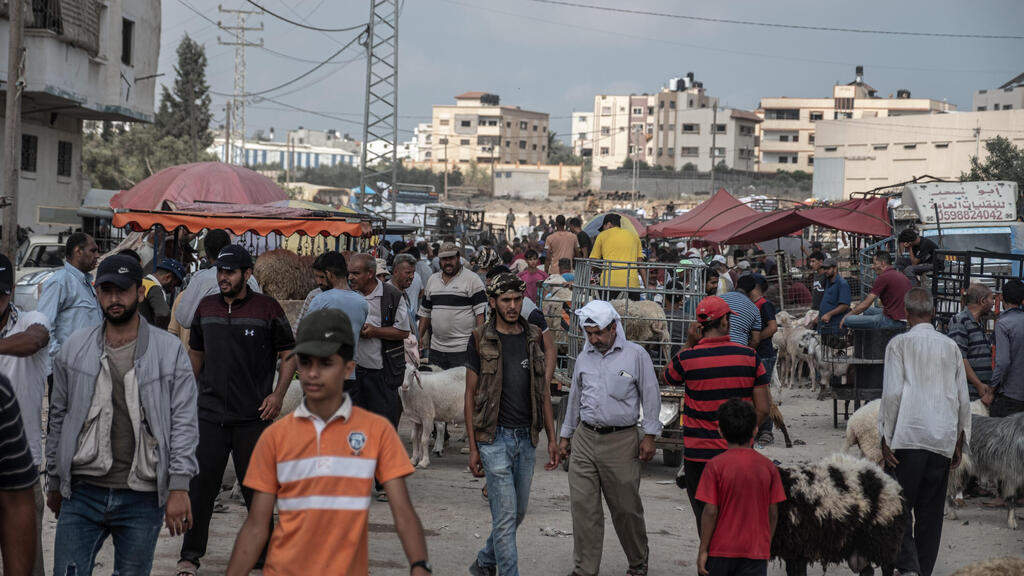

Vendors wait for customers as people look to buy sheep at a livestock market in preparation for the upcoming Muslim Eid al-Adha holiday on July 16, 2021 in Gaza City
(Photo: Getty Images)
The industrial and the private sectors are the worst affected by the crisis, says Ali al-Hayek, head of the Palestinian Businessmen Association.
“More than 1,000 economic facilities were destroyed during the latest Israeli aggression. The private sector has been particularly targeted since 2000, going through three previous wars without any kind of support,” he says.
If there are no rapid solutions, Hayek warns, “there will be successive collapses of the private and all productive sectors in the Strip, which will directly reflect on unemployment and poverty rates.”
One of the facilities destroyed by the Israeli airstrikes during May’s 11-day, cross-border violence was the Khudair Pharmaceuticals and Agricultural Tools Company, located in Beit Lahiya in the northern Gaza Strip.
5 View gallery
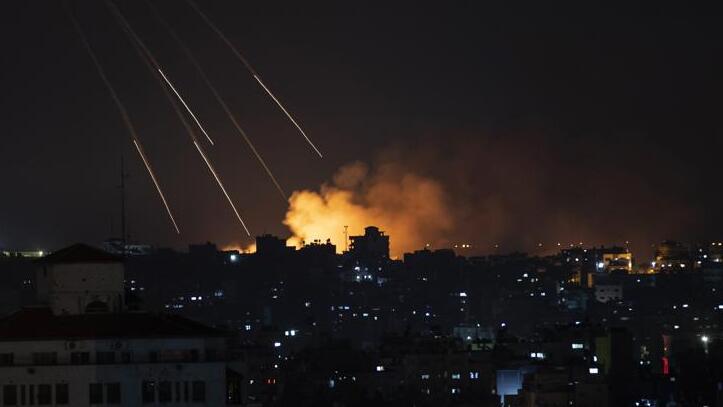

Smoke rises following Israeli missile strikes on Gaza City, Thursday, May 13, 2021
(Photo: AP)
“On the 15th of May, the 6-acre site, which contained huge amounts of chemical fertilizers, pesticides, plastic tubing and other agricultural supplies, was directly targeted by the Israeli aerial bombing, which resulted in a massive fire and total destruction of the facility,” says owner Abu Haytham Khudair.
Khudair, who lost 100% of his livelihood, says the bombardment caused an estimated loss of NIS 50 million (approx. $15 million), and released a mass of toxins that threatens the entire surrounding area.
“The targeted storage facility is now more like Chernobyl. The toxic mix of chemicals is already harming local residents, who have started to suffer respiratory and skin diseases. This will lead to a dangerous environmental and health catastrophe, so I call on authorities, and international organizations, to remove it as fast as possible,” Khudair says.
Israel intentionally hit major economic facilities in Gaza, he says.
“The night my storage facility was hit, more than 35 of the largest companies throughout the Strip were damaged too. Israeli aerial forces targeted sensitive facilities with full knowledge that all the firefighting services in the Gaza Strip wouldn’t be able to put out the fires,” Khudair claims.
5 View gallery
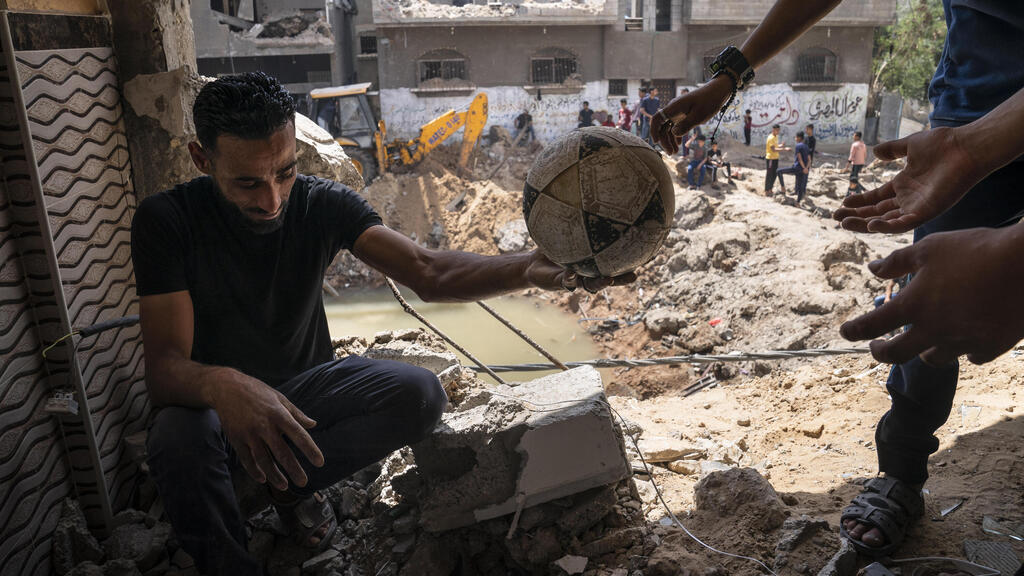

A home in Gaza after it was destroyed during Israeli strikes on the strip in the recent outbreak of fighting earlier this month
(Photo: AP)
Mohammed Abu Jayyab, a Gaza-based economist, also says Israel targeted vital economic assets, which further exacerbates the harsh living conditions of the Strip’s residents.
“More destruction would turn the coastal enclave into a large, [unproductive] area of consumption, rendering any kind of solution to deal with the crisis impractical,” he says.
Abu Jayyab suggests that the aggravated crises of unemployment, poverty and food insecurity will eventually lead to a strategic shift in the international programs supporting the Palestinian territories.
“There will only be [rapid] relief programs, instead of strategic development programs that aim to strengthen the role of the Palestinian private sector in ensuring a robust economic cycle,” he says.
According to the Euro-Mediterranean Human Rights Monitor report released in May: “The Israeli military attack led to widespread destruction in the agricultural sector, including agricultural lands and facilities that have been bombed by hundreds of air and ground raids. … In addition to the damage caused by the direct bombing, hundreds of dunams and farms suffered massive losses as a result of farmers’ inability to reach their lands and irrigate or harvest crops during the days of the attack.
5 View gallery
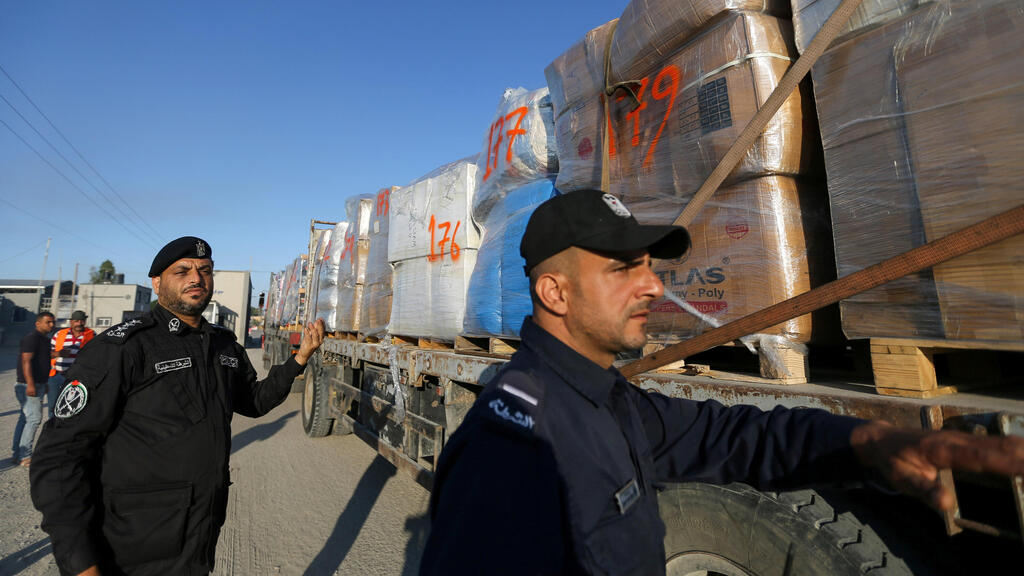

Palestinian police officers stand next to a truck carrying clothes for export at Kerem Shalom crossing in Rafah in the southern Gaza Strip,
(Photo: Reuters)
Ahmad Abu Owda is a small farmer from the northern Gaza Strip who lost his only source of income during the escalation, two dunams of land planted with cucumbers.
“Sixty-five percent of my greenhouses were damaged after being hit by Israeli airstrikes,” he says.
“But that is not all,” he says. “I had to choose between losing the crop to drought and losing my life in an Israeli raid. I couldn’t reach my land during the escalation to irrigate the crop; as a result, I’ve lost what was left of it. After all the hard work, everything was gone. This is so painful.”
Given his accumulated debt and deteriorated living conditions, Abu Owda could not replant after the fighting ended.
Naji Sarhan, the deputy head of the Public Works and Housing Ministry in the Hamas-run Strip, says that Gaza “which has been living under Israeli blockade for more than 15 years, can bear no more delay in the reconstruction process.
“It has to start immediately because any procrastination will lead to a bigger humanitarian crisis. At that point, no one will be able to predict the Palestinians’ reaction, because they will have nothing more to lose,” Sarhan says.
5 View gallery
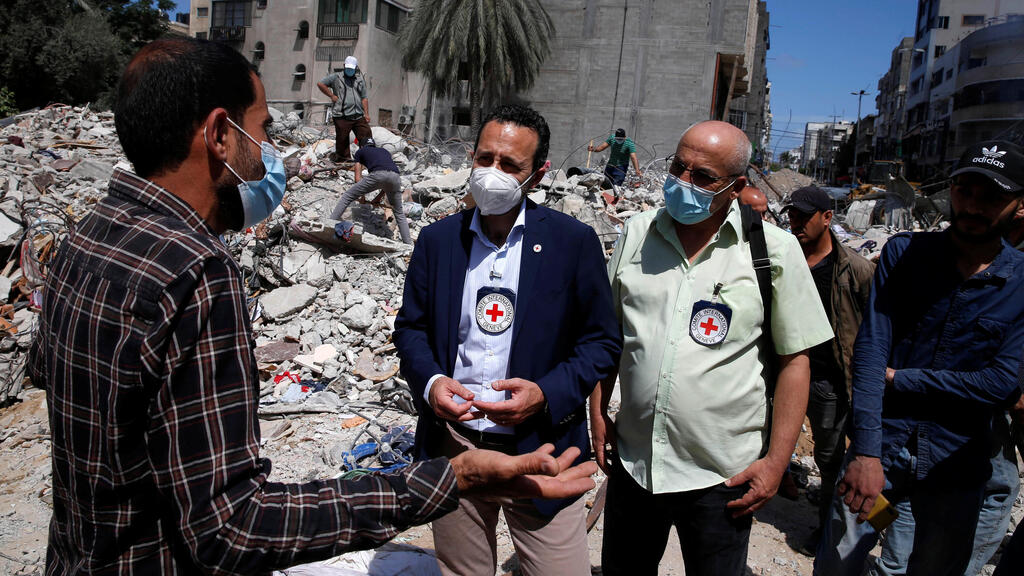

Robert Mardini gestures as he speaks with a Palestinian man near the rubble of a house destroyed in Israeli air strikes during Israeli-Palestinian fighting, in Gaza City
(Photo: Reuters)
There are unconfirmed reports that Israel may open border crossings in the coming days to allow the entry of some materials into the Strip, such as medicines, food and limited types of non-dual-use raw materials, meaning raw materials that cannot be used for military purposes. But Abu Jayyab denies this will have any positive impact on Gaza’s economy.
Even if this happens, “we can’t expect much development on the economic level. In fact, this would be worse than before, because what would be allowed to enter [according to this scenario] is only 50% of what was allowed before the escalation,” he says.
“We’re talking about basic goods for the daily consumption of Gazan residents while the great majority of other materials remains banned, depriving economic and productive sectors of any chances to grow and develop,” he says.
“Any kind of real economic development can’t happen without fully lifting the Israeli blockade, unconditionally reopening crossings, and empowering the Palestinian economy via assured rights of movement to and from the Strip.”

